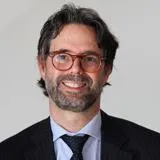Please note: this event has passed
Conference objective
The main objective of this conference is to bring together academics, practitioners, and international organisation officials to discuss key developments around the legal accountability of transnational institutions. The use of the term ‘transnational’ is deliberate. The aim is not just to consider accountability concerns relating to public international organisations (IOs), but also ones relevant to multinational corporations (MNCs) and non-governmental organisations (NGOs). We believe that there is much to learn from undertaking such a holistic comparative study. The focus is on legal accountability in general. In particular, the notion of access to justice for alleged victims of institutional conduct, both in its procedural and substantive sense has been in sharp focus for some time now. This discussion is also related to the due diligence obligations increasingly imposed on transnational institutions, which again, have procedural and substantive aspects. The procedural aspects relate to access to justice issues in terms of the availability and/or quality of forums provided to victims of institutional conduct. Substantive issues may relate to the regulatory regime applied to resolve the merits of a claim, including the nature and scope of due diligence obligations on transnational institutions. We seek to deal with both procedural and substantive aspects, which can also overlap.
Agenda and list of speakers
Panel 1 – Access to justice and international organisations
(11:00-12:30 UK time)
- A discussion between Professor Raul Pangalangan (Professor of International Law, University of Philippines, Judge, Asian Development Bank Administrative Tribunal, Former Judge, International Criminal Court) and Dr Rishi Gulati (Associate Professor in International Law, University of East Anglia, Barrister, Victorian Bar)
R Gulati, Access to Justice and International Organisations (CUP, 2022)
- Professor David Stewart (Professor from Practice, Georgetown Law; former assistant legal adviser, US State Department)
US law and IO immunities: trends and prospects
- Professor Philippa Webb (Professor of International Law, King’s College London; Director, Centre for International Governance and Dispute Resolution) and Dr Rishi Gulati
UK and comparative developments in IO immunities
Lunch break (12:30-13:15 UK time)
Panel 2 – Scrutinising the role of permanent adjudicative mechanisms in claims involving transnational institutions
(13:15-14:45 UK time)
- Chair: Professor Holger Hestermeyer (Professor of EU and International Law, King’s College London; Director, Centre for International Governance and Dispute Resolution)
- Professor Raul Pangalangan
International administrative tribunals: past, present and future
- Mr Edward Chukwuemeke Okeke (Lead Counsel, World Bank)
Access to Justice and the Accountability Mechanism of Multilateral Development Banks: The Case of the World Bank
- Ms Elizabeth Hassan (Senior Counsel, OPEC Fund)
Creating new dispute resolution mechanisms at international organisations: challenges and opportunities for enhancing access to justice
- Professor David Kaye (Clinical Professor of Law, University of California, Irvine; former United Nations Special Rapporteur on the promotion and protection of the right to freedom of opinion and expression (2014-2020))
Enhancing corporate accountability through privately created adjudicative mechanisms: promise and future prospects
Coffee break (14:45-15:00 UK time)
Panel 3 – International arbitration in claims involving transnational institutions
(15:00-16:30 UK time)
- Chair: Professor Philippa Webb
- Professor Anne van Aaken (University of Hamburg Alexander von Humboldt Professor for Law and Economics)
The newly created Hague Rules on Business and Human Rights Arbitration
- Professor August Reinisch (Professor of International and European Law, the University of Vienna; Member, International Law Commission)
International organisations and international arbitration
- Mr Alex Haines (Barrister and US attorney (New York), Outer Temple Chambers, United Kingdom)
Appearing before IATs and arbitral bodies in claims against IOs: is there a superior mode of dispute resolution from an access to justice perspective?
Coffee break (16:30-16:45 UK time)
Panel 4 - The nature and scope of the due diligence obligations on transnational institutions
(16:45-18:15 UK time)
- Chair: Dr Rishi Gulati
- Associate Professors Aviden Kent/Youseph Farah (with Mr Valentine Kunuji) (University of East Anglia)
Due diligence and multinational corporations: perspectives from the European Union
- Ms Nicole Liverpool Jordan (Deputy General Counsel, Caribbean Development Bank)
Due Diligence in Caribbean Development Bank-financed Projects
- Professor Nigel D. White (University of Nottingham)
Due Diligence in UN Peacekeeping Operations
- Dr Rosana Garciandia (Lecturer in Public International Law, King's College London)
Due diligence and non-governmental organisations
Conference drinks (18:15 onwards)
Event details
TBCSomerset House East Wing
Strand Campus, Strand, London WC2R 2LS

